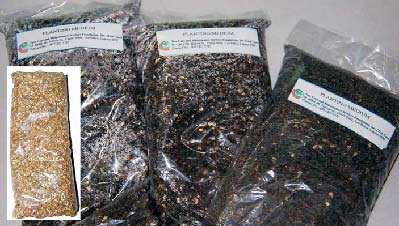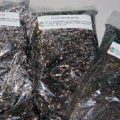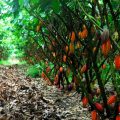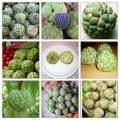Soil less agriculture is now possible with hydroponics. Using only a mineral nutrient solution, water can now be a medium to grow crops. As the concept of “grow-your-own-food” has become viable in this time and age, the technology is appropriate particularly in an urban setting wherein the lack of space and soil is a problem.

Aside from hydroponics, another technology that introduces the use of minimal amount of soil and space is the vermiculite. The topic was discussed in a seminar sponsored by the Bureau of Agricultural Research (BAR) held on 28 February 2013.
Mr. Patrick M. Rocamora, president of Tree Care and Maintenance Services Foundation, Inc. (Tree Care), served as the resource person discussing the use of vermiculite-based, low-spaced soil less growing medium in the promotion of urban gardening.
Vermiculite is a shiny, light brown colored naturally occurring mineral prominently used in construction, industrial, horticulture, and agriculture. Its dominant characteristic is that when subjected to heat, it can expand as much as 8-30 times its original size, thus, a good raw material for insulation. The major vermiculite mines are located in South Africa, China, Brazil, Zimbabwe, and United States. The premise of Rocamora’s presentation is the complementation of the vermiculite with urban gardening.
Urban gardening was born out of the possibilities of growing crops and sustaining food source with limited space available. With emphasis on 3Rs (reuse-reduce-recycle), productive but economical gardening is possible using only container materials available in the locality such as tin cans, plastic tubs, used tires, Polyethylene terephthalate (PET) bottles, etc.
Urban gardening is made easier with the help of vermiculite. He pointed out that vermiculite can be utilized in agriculture as soilless culture medium and for faster seed germination. As it is lightweight, odorless, mould resistant, non-irritant, and non-toxic, it is safe and easy to use. He also enumerated the good characteristics of vermiculite that foster the healthy growth of plants such as having a neutral pH (7.0), improves soil aeration, helps in retaining moisture and the added nutrients to feed roots, and possesses useful cation exchange properties.
Rocamora said that any plant which does not take too much space such as vegetables, flowering plants, fruit-bearing (grafted), medicinal plants, herbs and spices can be grown.
Just adding a certain amount of vermiculite, aside from soil, sand, coconut coir, compost, sphagnum moss, and perlite can be utilized as culture media. Vermiculite alone can also be used as a culture medium. However, it is expensive as the vermiculite available in the country is still imported. A 20-kilogram (kg) vermiculite costs about PhP 1,200.
This is why the Tree Care conducted an experiment to determine the right proportion of vermiculite that should be used. Using garden soil as the growing medium, it is found out that crops grow best using only 1/2 garden soil and 1/6 vermiculite compared to using the garden soil alone. With this result, the growers can save and still maximize the growth potentials of the crops.
Tree Care is making the necessary steps to make vermiculite locally available in the market. They are planning to have a vermiculite exfoliation facility to accommodate the demand.
BAR, seeing the potentials of the technology in promoting food production and proper nutrition to the youth, embarked on a collaborative project with Tree Care titled “Commercialization of Vermiculite-based Low-spaced Soil Less Growing Medium in the Promotion of Urban Gardening for Primary and Secondary Public Schools.” The project is piloted in selected primary and secondary public schools within the cities of CALABARZON.
Tree Care is a professional arboricultural company offering services in proper tree care and other plant related maintenance. It was established in 2002 by forestry and agriculture experts and practitioners of the University of the Philippines Los Baños. ###
———
References:
1. United States Environment Protection Agency. (2012). Protect your family from asbestos-contaminated vermiculite. Retrieved 13 March 2013 from http://www.epa.gov/asbestos/vermiculite.html
2. Vermiculite – what is it? (n.d.). Retrieved 13 March 2013 from http://www.vermiculite.org/what_is_vermiculite.php
3. Tree Care. (2013). Utilization of vermiculite-based low-spaced soil less growing medium in the promotion of urban gardening [PowerPoint slides].
For more information regarding vermiculite and urban gardening, please contact the Tree Care office at (049) 536-0054 or through their email address: treecare@madecor.com
by Diana Rose A. de Leon, www.bar.goc.ph






